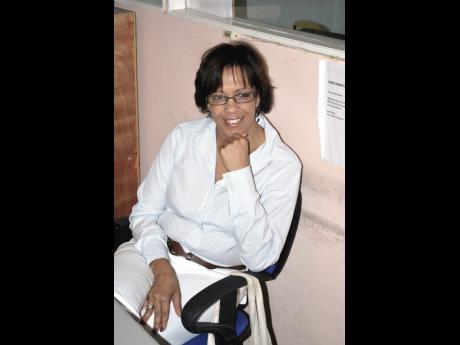Chocolate Dreams reshapes retail arm ahead of 2016 IPO
Chocolatier Michelle Smith is rolling out a new retail model for her business that will place the distribution of confectioneries made by Chocolate Dreams into the hands of a network of small entrepreneurs.
The concept will first be tested in a storefront operation to be located inside the Loshusan Supermarket at Barbican Centre in Kingston.
Smith says she is restructuring the business to concentrate more on the manufacturing side of the operation, as well as to position Chocolate Dreams to go public via an initial public offering (ipo) on the Jamaica Stock Exchange in 2016.
The new distribution network is being financed from a $10 million line of credit secured for the purpose and to strengthen the business, said the Chocolate Dreams CEO.
Under the model crafted by the chocolatier, her company will design the shops and provide the equipment and then hand over the outlets to others to operate.
"It's called a distributorship agreement, where I maintain a place on their board and they purchase from us here at the factory," said Smith. "They do everything that we do at Devon House. They will imitate that," Smith said.
Alongside Devon House, Smith also operates retail outlets at the Progressive supermarket in Montego Bay in addition to an outlet at her manufacturing base at Roosevelt Avenue in Kingston. She said the Devon House location would eventually be turned over to a distributor.
Smith did not disclose the identity of the Barbican centre partner. The pop-up shop spanning around 200 square feet of space, is scheduled to open by late October.
Another shop is planned for the Sangster International Airport in Montego Bay, but space has not yet become available.
The chocolatier in the meantime has indicated a preference for female distribution partners.
"I am trying to get more involved in my production side, so I want the administration of those outlets to be held by two women in each location that we will eventually open. So it is an opportunity for people to be their own boss, their own entrepreneur," she said.
Chocolate Dreams started just about 10 years ago when Smith decided to convert a hobby into a moneymaking business. The CEO says that while the company generates positive returns, she has recognised for some time the need to streamline the business to achieve growth and higher profits.
She also needed a substantial injection of funds to help with expansion and working capital and has spent years trying to secure backing.
"It has been four years searching for funding," Smith said.
Then in November 2014, Smith pitched her idea at a farmer's expo. A Development Bank of Jamaica official who was at the expo told Smith that the DBJ's Voucher Programme, which is aimed at institutional strengthening for small businesses, could be a starting point.
"I got two DBJ vouchers in March of this year for coaching and mentoring and strategic planning, and so we did the cash-flow projection and prepared the proposal," Smith said.
Smith said she was stunned to find that the evidence of why Chocolate Dreams was not growing had been staring her in the face all along.
"We got our accounts in place, analysed our sales figures, and realised that we were purchasing local, but if I went back to our overseas supplier, we would have saved 60 per cent immediately on our bottom line," she said.
Armed with this analysis, Smith turned to Scotiabank Jamaica for a line of credit in the form of a collateralised facility that she could use to establish the new shop and have real working capital in hand.
"We asked for $6 million for permanent working capital and a little capital expense and $4 million as a revolving line for our purchasing of credit from Scotiabank. The capital expense is going towards putting up a mini-Devon House outlet at Loshusan, which we have already designed and which will increase our sales tenfold," Smith said.
The interest rate on the facility is 10 per cent per annum. The available working capital means that Chocolate Dreams can now take advantage of price breaks afforded by larger volume purchases.
"We are now going to start purchasing for the first time in bulk, so we will get better prices on raw materials and not import as often, so it will be better for us in the first year. By the end of this year, our projected sales are about 20 per cent more than last year, but by next year, we aim to be capable of going to the stock exchange," Smith said, referencing her plans for an IPO.
The chocolate CEO says she is aiming to have pop-up shops in every available supermarket.
Her products are also distributed through the hotel sector as displays on hotel beds as part of their 'turn down' service. This an area that Smith is also targeting for expansion. She also hopes that Chocolate Dream's manufacturing base will eventually become a regular stop on tour routes.
"Long term, we see a factory, a tourist attraction, where people can come in and see chocolate being made, see the end product, buy it, look around, and learn about chocolate," Smith said.
Chocolate Dream is not the only Jamaican company involved in the chocolate business, but it is the only one whose products are manufactured inside Jamaica.



